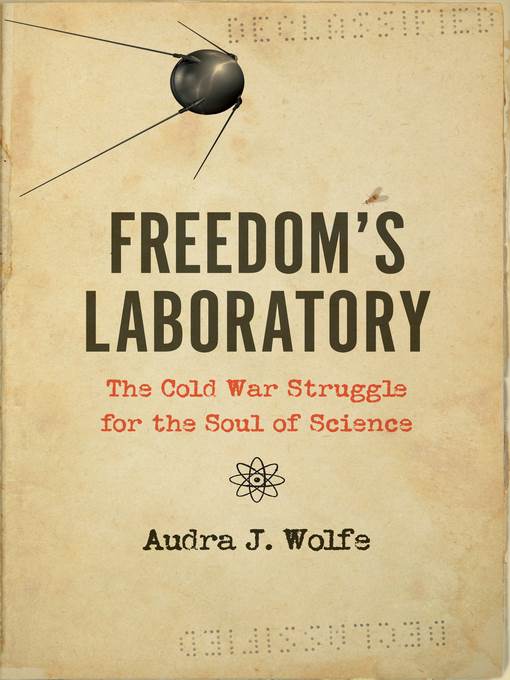
Freedom's Laboratory
The Cold War Struggle for the Soul of Science
- اطلاعات
- نقد و بررسی
- دیدگاه کاربران
نقد و بررسی

September 15, 2018
Of psy-ops, seismic detection, and other emanations of the Cold War as it was conducted in petri dishes and cyclotrons.In this engaging and dense study of the politics of science in the Cold War era, historian Wolfe (Competing with the Soviets: Science, Technology, and the State in Cold War America, 2012) examines a puzzling paradox: In an era of McCarthy-ite redbaiting and witch-hunting, how could scientists with leftist affiliations keep on working on classified projects related to that struggle against the Communist bloc? The answer is that the era may not have been as thoroughly politicized as we think--or, in the case of at least one prominent researcher, "the US government embraced advocates of scientific freedom as spokespersons for American values." Just so, science was not necessarily oppositional: A scientist could support civil rights and other prematurely anti-fascist causes without by definition becoming an enemy of the state, and indeed many scientists took care to make clear distinctions between their personal views and their public objectivity. Well-funded by dozens of organizations that were in varying degrees dependent on the government--even as the government took care to pretend that they were all independent--these scientists fought the scientific Cold War on many fronts, engaging against Lysenko-ist notions of genetics here and doing thermonuclear research there. Even so, they engaged Soviet-bloc scientists in regular conferences, some specifically with an eye on promoting international cooperation and peace; they also participated in operations such as Pugwash, which "offered a reliable backchannel for diplomats and intelligence officers in both the United States and the Soviet Union" even as it purported to be made up of unaffiliated scientists. In the end, Wolfe suggests, scientific neutrality, when it comes to politics, may be a chimera, but even that doesn't matter much in an era when, in the U.S. government, "the structures of power no longer value independent thought, a common public good, or global opinion"--or indeed, science itself.A strong contribution to the history of modern science.
COPYRIGHT(2018) Kirkus Reviews, ALL RIGHTS RESERVED.

September 24, 2018
Historian Wolfe (Competing with the Soviets) offers a thoughtful, thoroughly researched history of how the American government employed science and scientists to improve world opinion of liberal democracy during the Cold War. She writes informatively about the political events and issues that influenced American policymakers, among them the 1957 Soviet launch of Sputnik and the debate over atomic weapons proliferation. Wolfe also focuses on how, as the Cold War progressed, the CIA, in service to using the American scientific community as a weapon of propaganda, became increasingly involved in influencing or controlling the exchange of scientific information between scientists in the U.S. and its allies, by 1967 supporting 38 supposedly private scientific organizations to the amount of $15 million annually. Wolfe concludes that the U.S. efforts, specifically those centered around championing the human rights of scientists in the Soviet Union, were successful, “unlike most of the United States’ other attempts to destroy Communism through culture.” In a short epilogue, explicitly referring to “Trumpism,” Wolfe observes that science is political and warns that the choices scientists make today will have consequences for generations to come. Although Wolfe’s topic is narrow, readers with an interest in the conjunction of science and politics will find her book an informative one.

November 1, 2018
One of the common misbeliefs about science is that it is apolitical. Actually, as historian Wolfe reveals in her well-researched and closely argued study, during the Cold War, American scientists were often deeply involved in promoting American cultural values to other parts of the world in an effort to defeat the communists at the same game. Wolfe has explored this topic on a narrower front in her earlier work, Competing with the Soviets. Here, her research base is impressive, using primary sources from numerous archival collections throughout the United States, to present a narrative that clearly shows the active engagement many American scientists had with government agencies and their willingness to participate in propaganda in support of the American way. VERDICT An excellent study on a topic that deserves more attention. Recommended for academic and large public libraries.{amp}mdash;Ed Goedeken, Iowa State Univ. Lib., Ames
Copyright 2018 Library Journal, LLC Used with permission.




دیدگاه کاربران